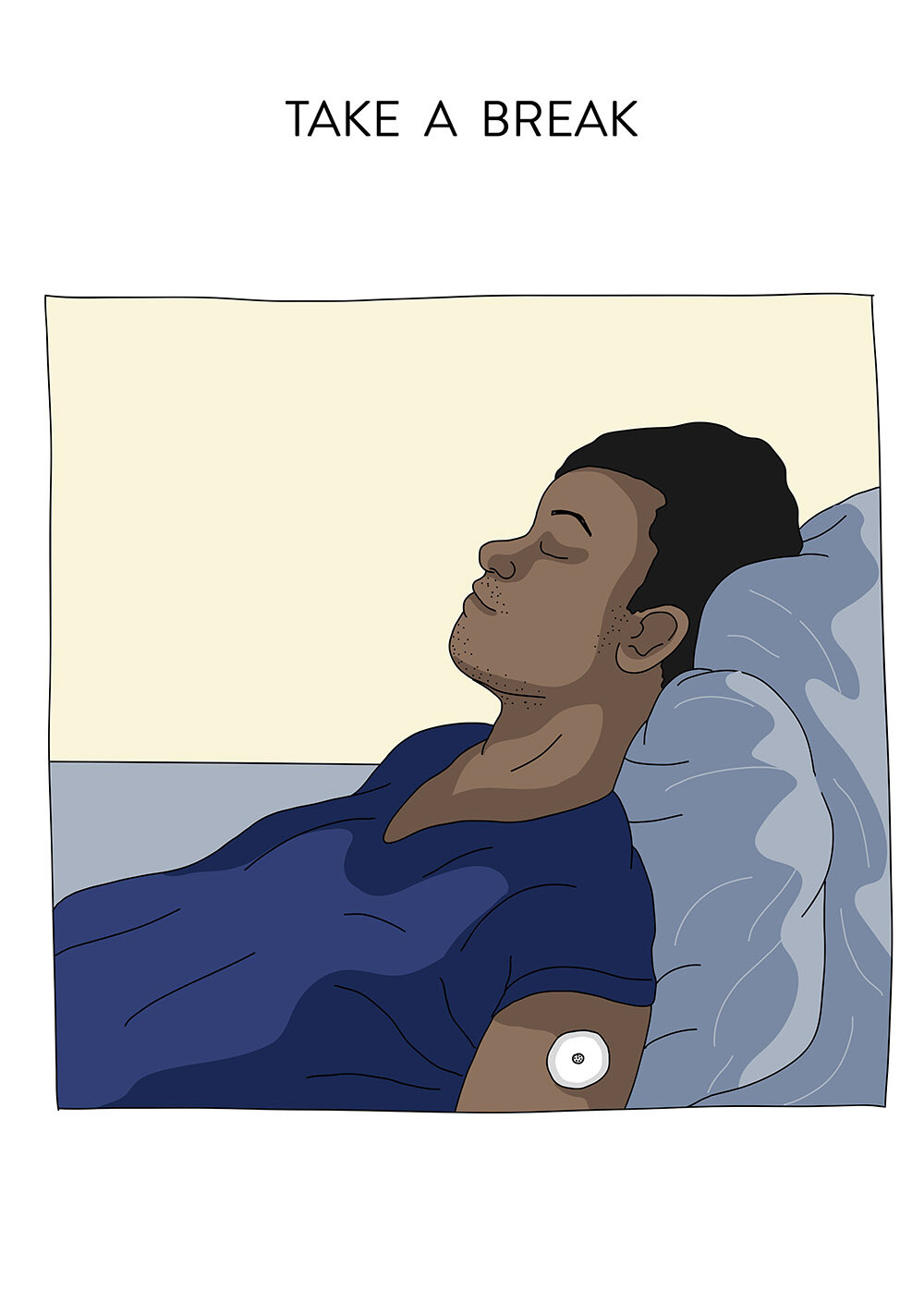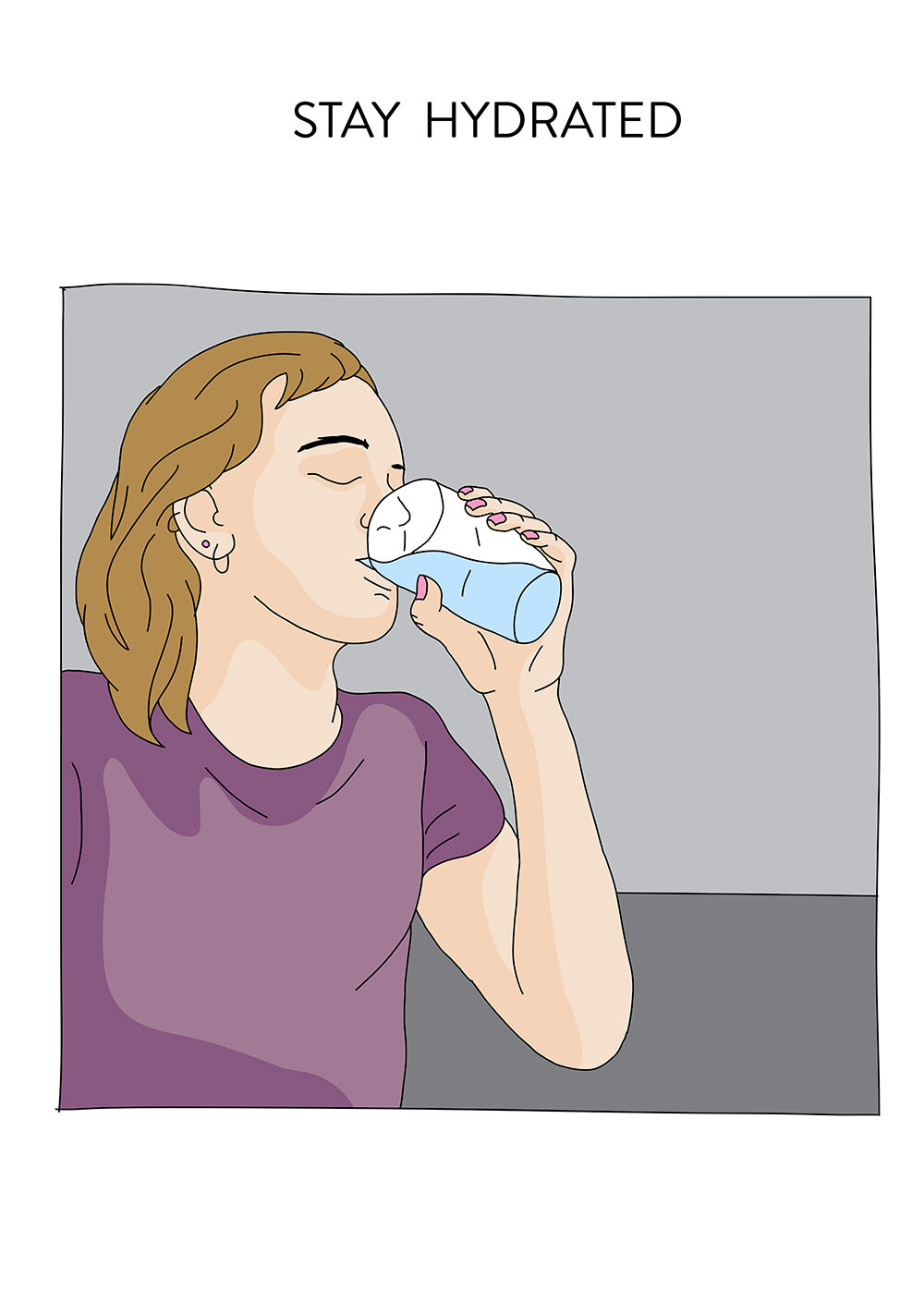Mental health
Mental health support is something that people of all genders might need at some point in life. Nearly 1 in 5 people will experience some form of mental health condition in the next year 1, a number which can be even higher for trans and gender diverse people2,3.
The idea that ‘being trans’ is a mental health condition is a myth, and is not substantiated by any evidence. However, some trans people do need or want mental health support for conditions unrelated to our gender, in the same way that some cis people do.
It can take time to find the mental health support that feels right for you, and that’s okay, but there are a lot of services and supports out there.
To develop this page, we worked with ACON’s Clinical & Client Services Team who offer caring, supportive counselling, care coordination and substance support services to the LGBTQ+ community across NSW, including lots of trans and gender diverse people.
Accessing mental healthcare
There are different forms of mental health support, all of which can have a slightly different function, cost, and path to access. Knowing who to talk to, and when, can be a great starting point. Many clinicians offer services in-person and/or via phone. Some clinicians are able to offer Medicare rebated Telehealth sessions, it’s best to check in with them.
Illustration by Samuel Luke Art
A phone or internet chat line: An anonymous phone or chat line is staffed by people who are able to listen to your concerns and provide support. The kind of support available depends on the service, but most phone and chat services are staffed by trained counsellors. A list of several phone and chat services is available here.
Your GP: A General Practitioner is often the first place people go when wanting to access mental health support, and they are able to support you directly, or connect and refer you to other mental health specialists.
A counsellor: A counsellor is someone who is usually trained in talk-based therapy, where they will listen to you talk and help you to overcome concerns and gain perspective.
A Psychologist: Psychologists are trained in providing support, tools and practical guidance to people experiencing mental illnesses, as well as offering counselling and therapy.
A Psychiatrist: Psychiatrists are medical doctors, and have an understanding of both mental and physical health, and how they may interact. Psychiatrists can also prescribe medications.
ACON’s counselling teams are available to support people in need across NSW. Find out more here.
Our Directory is a community list of mental health providers offering affirming care for Mob and People of Colour across Australia. Visit here.
A registered mental health professional who has Masters level qualifications is also able to undertake an assessment and endorsement of your capacity and readiness for gender affirming surgical interventions.
Who will be the right fit for you at any given point will depend on what your health needs are, who is available near to you, and the training they’ve received. You can always encourage your clinicians to visit TransHub. We have a whole section for them.
Finding trans-affirming mental health services
Sometimes mental health services are not affirming of trans people and our lives. This may look like not taking your experience, identity, or language seriously, or causing harm through their words or actions.
You deserve to see health professionals that take you and your life seriously, and respect who you are.
One great way to see if a service or individual will be the right fit for you is to ask them a few questions before making an appointment. You can have a friend or loved one help with this, too. Our 10 questions resource offers some questions you can ask of a referred service to find out their trans competency.
Affording mental healthcare
Mental healthcare in Australia can be expensive, and the cost involved can vary greatly depending on the mental health professional you’re seeing.
If you are struggling financially, phone and chat services are a great option to start seeking support, as are seeing mental health workers offered through your workplace, school, university, or community centre.
If you want to access a psychology service, talk to your GP about obtaining a Mental Health Care Plan, which helps to offset the cost of up to 20 psychologist visits per year.
Trauma and triggers
Trauma is a response to experiences and events that are extremely disturbing or distressing. It can form from a wide range of experiences, and express itself in many forms. Trauma can make us feel anxious or depressed, helpless, uncomfortable, unsafe even if there’s no direct threat, or cause us to relive the distressing experiences we’ve been through in the past.
Experiences of trauma can be more common for many marginalised groups, including trans people, for who a large number report experiencing trauma at some point in our lives2,3,4. Even though it can feel like a very big and impossible thing, it is possible to work through and heal from trauma, just like we can heal from other things we go through.
We will recover from different experiences in different ways, and finding a mental health professional you trust and can begin to share with is a valuable part of recovery. Some people also find it useful to seek people and spaces that feel safe, to develop new ways of reassuring themselves, or to find a healthy outlet through creativity, exercise, hobbies, or mindfulness practices.
For more information about recovery and support after sexual assault or coercion, visit this page.
Triggers
Triggers are particular experiences, events, or concepts that can cause us to remember or re-experience a traumatic event, or make the brain think there’s a threat present, even when there isn’t one.
A person’s triggers may be relatively clear, like reading something similar to what they experienced, or triggers may be difficult to identify, like a particular smell, sound, topic, emotion, word, place, or even memory. There are no rules about what a trigger can or can’t be.
It can be difficult to avoid triggering material, but by being careful about who you follow online or what you read or watch, you can minimise your exposure. This may include asking a friend, searching online, or checking a site like DoesTheDogDie.com to see if the material will be good for you to engage with.
Self care and self-soothing
While the concept of ‘self care’ has taken on ideas of luxury, bubble baths, and decadence, it is really about knowing and doing the things that help you to feel safe, comfortable, and ready to face the challenging stuff.
Self care might look like having a long bath after a hard day or because you’re feeling sore, but it also might look like doing chores, cooking yourself a meal and freezing several portions of leftovers, or checking in with a friend to let them know you’re having a tough time.
Check out these ideas as well as our Trans and Strong resource available here as a designed poster, and as a text only version.
If you’re struggling to think of what you can do to look after yourself, draw three columns and label them “no energy,” “low energy,” and “high energy,” then start adding things below each heading when you think of them.
Before you know it, you’ll have a whole list of options you can turn to no matter how you’re feeling that day.
Downloads
10 trans questions to ask a doctor - TransHub [ Plaintext version ]
Doctor letter: affirm name and pronouns - TransHub
Trans and Strong [PDF] - ACON
Links
1 Facts & figures about mental health [PDF] - The Black Dog Institute
2 Trans Pathways: the mental health experiences and care pathways of trans young people - Telethon Kids Institute
3 The First Australian National Trans Mental Health Study: Summary of Results [PDF] - Curtin University and Beyond Blue
4 From Blues to Rainbows: Mental health and wellbeing of gender diverse and transgender young people in Australia [PDF] - The Australian Research Centre in Sex, Health, and Society
Case Management (ages 18 – 25) - Twenty10









